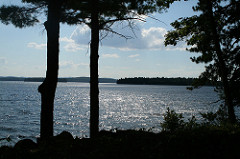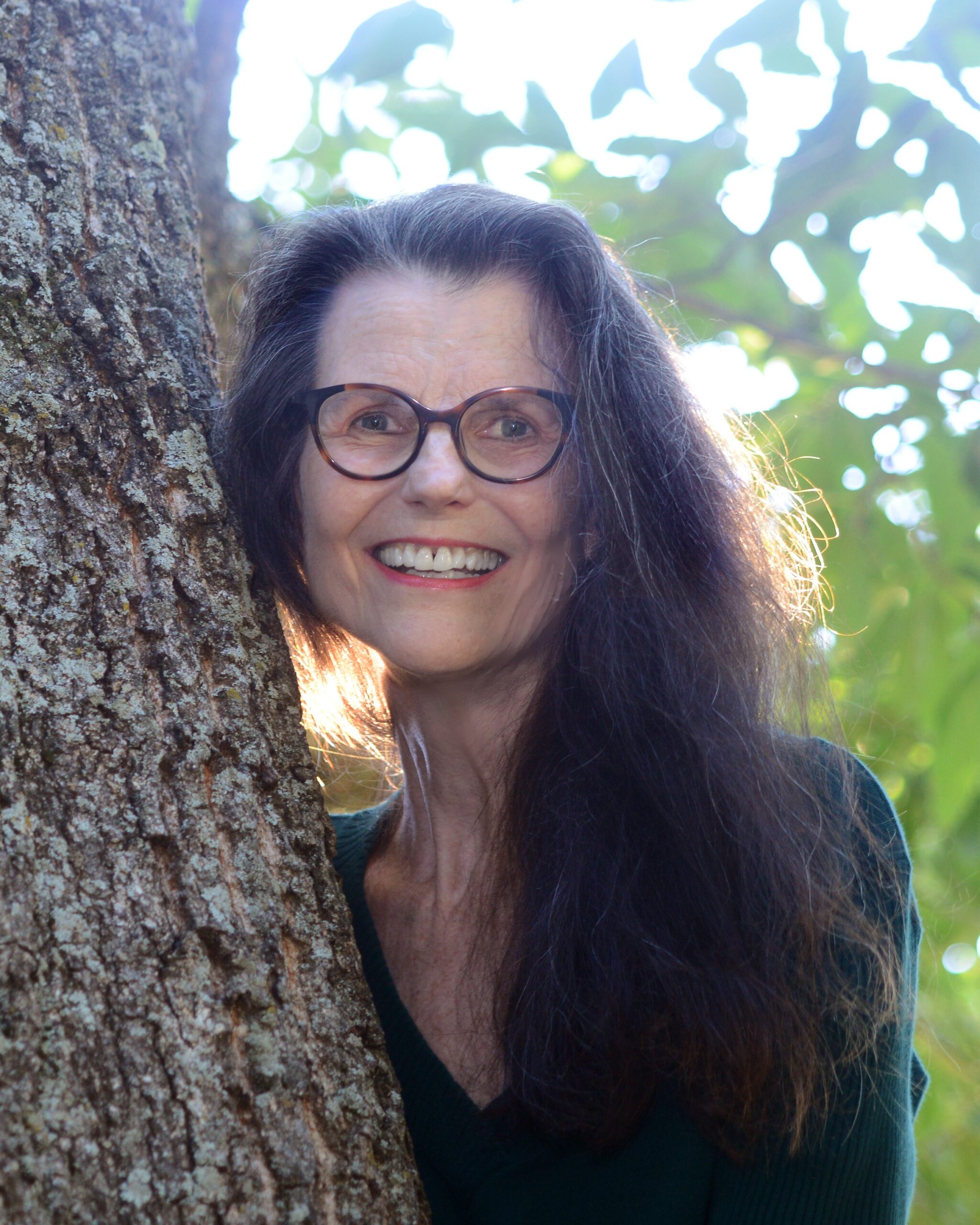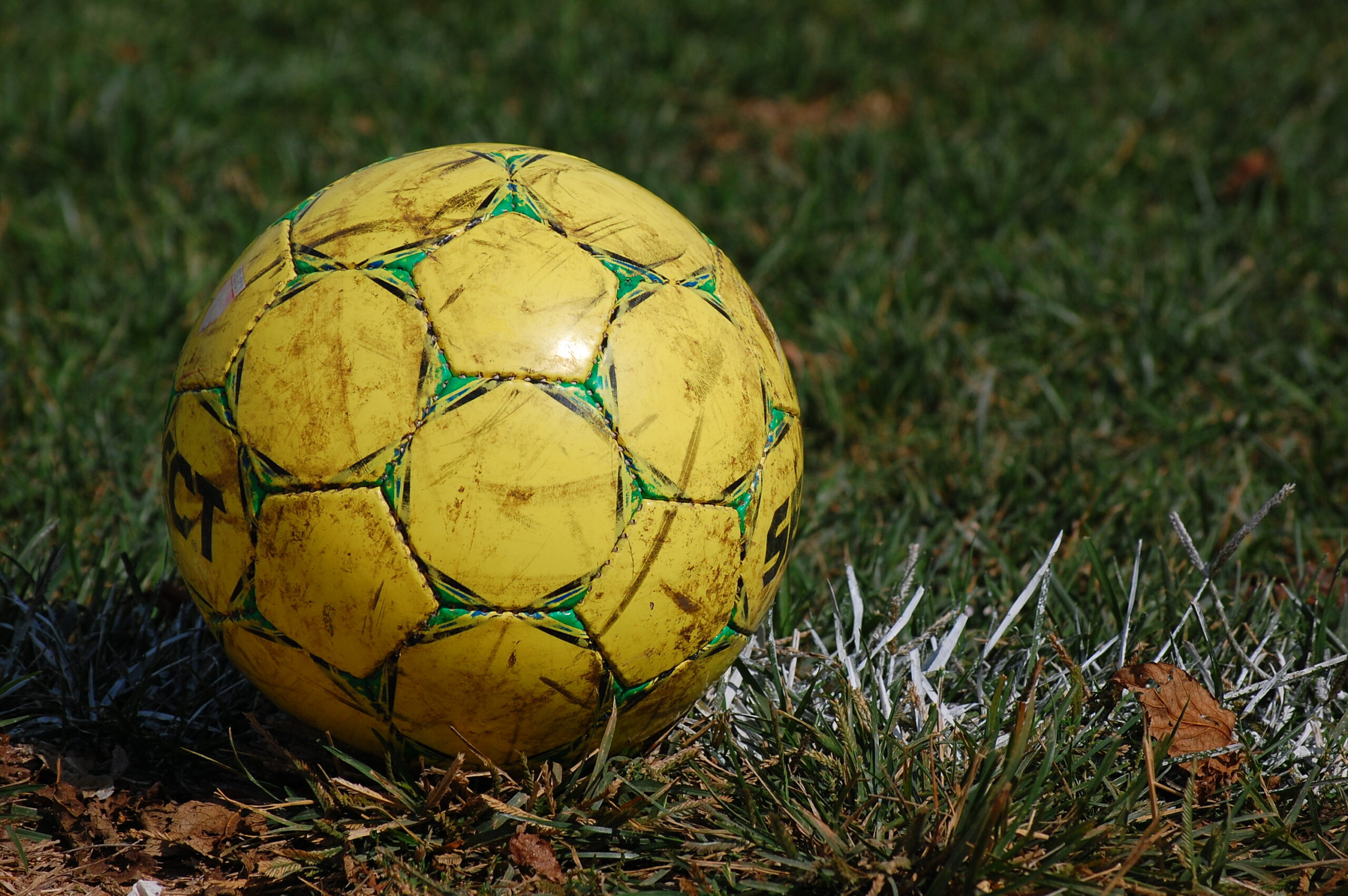By TIMOTHY WATT
Long ago I found myself in a dark wood wandering, a tale-teller with no tale to tell. How I’d come to be in that place, I don’t know. I was there shivering, empty, trying and failing to remember the tales I’d told, in times past, in ages before. I couldn’t remember any of them, much as I tried to conjure characters in the throes of a verb, scenes in rooms, conversations, anecdotes, themes. And soon after—I don’t know when, time like the night was monochrome and either too rapid in its passing to be tracked at all, or statuesque, cold and still—I found I no longer knew what a tale itself was, its contours and constituent parts, its reasons, its design. It was then I heard a slow crashing in the timber behind me. I did not look up. There was nothing consoling to be seen. Before me stretched a vast lake, a lake whose color rendered all previous understandings of black, blue, a lake of terrifying calm. The surface was glass, unrippled and hulkingly silent, and the lake did not lap against any of its shores. It was—I see it now—a body of water in an attitude of petrifaction.
This was the lake before me. Behind me stretched the woods, and around me also—it was only the lake that broke the woodline, and relieved me of the feeling of absolute, negation perhaps. I may have been there for years, bereft of tales, and equally—more painfully—bereft of an understanding of them. Imagine a fossil whose consciousness remains, or a glass figurine with a living tongue, an aching, desiring, wordless tongue, lolling about in the glass-cage skull to which it belongs. This is how I felt, and how I took my circumstance to be. I’d long since given up hope. I hadn’t had a drink for years.
But that was all long before the time I am speaking of now. All things considered, that was an easier time on the heart, a less persuasive landscape of despair—
The tale which I am trying to tell now is difficult to tell. To think of it renews such longing and such fear that I find myself as if petrified, stalled out between heartbeats, unable to breathe again. Have you ever seen a fistful of darkness turn into a brick? There was a crashing again in the timber behind me. Brittle timber it was, though I could not see it, dry as sunbleached bones. What could I do but wait, for whatever it was that was coming for me, where I sat, a vacated figure in a position of terrible availability? So I was. Thus I waited.
The smell came first. I don’t know how to describe it except to say that it belonged to the grizzly bear who followed in its wake. My back was to him, but, like all animals aware of imminent death, I’d grown, or perhaps simply uncovered, eyes in my back, and those eyes saw first a towering shade and two red, expressionless dots floating high within it.
The grizzly bear had paused, stunned it seemed by the fact of a new smell. He’d not yet seen me. He’d not yet roared. It seemed to me then that hours passed, in which we both remained motionless, waiting perhaps for the other to move.
To say I was afraid would not begin to describe how I felt; nor would to say I was panicked or confused. There was something rapturous in it—the feeling I felt—and something I would describe now as purified, as if I’d shed all history and precedent and was left with a purpose as simple as a heart’s, and as irreducible.
I’d not known a bear could be so silent or so still.
At some point, after a long time had passed, it felt as if we’d begun to forget each other, were proximate but far apart, dreaming our separate dreams. Then the pain began. And soon every joint in my body felt as if liquid iron had been poured over it, and in it, and this iron solidified, petrified the joints in place, condemned them to a single attitude—and my lungs, I could feel it happening with each breath, were transfiguring into frail, frigid glass, of the kind that will shatter in the vicinity of any pressure, no matter how fleeting, no matter how faint or incidental. The pain was excruciating beyond all of my previous understandings of pain. I had to move. I couldn’t move. To risk moving at all was to risk the ecology, the delicate truce developed between the bear and myself, to provoke a response I could not foretell. Such was my dilemma, and it had a finality to it, an expert mockery. It was then a moan came forth from somewhere deep within me—I didn’t ask it to—and when it did the grizzly bear startled, and roared the silence out of the world. And my body, suddenly unaware of its pain, sprang away in a sudden flurry of animation—I didn’t ask it to—and when I sprang away, the grizzly came forth, roaring again, and attacked me fleeter than light.
The first swat caught me in the back of the head—I can’t be sure of this— and I fell—I am sure of this—and then I was lightness itself and without pain, disappearing from matter. And my body and all of my nerves, in a wartime reflex of solidarity, colluded and made, in me, and for me, and as me, a hallucination of being as water. When the bear swatted me again and pinned me to the earth, I considered myself embraced, in his atmospheric melee of noise and stench and spit and fur, and the sheer unstoppable divinity of his rage. I held on to him, I clutched fistfuls of his fur and flesh. My head fell against his chest and I held it there, and what I heard was the planetary booming of his heart, in its exertions, and I have not thought that life was meaningless since.
Then I no longer felt the bear or myself at all. I don’t know if I stopped breathing. I remember, faintly, the grizzly’s enormous, roaring, fang-filled mouth fell suddenly silent and closed, and became a tentative sniffing, and was followed by a soft almost quizzical whimper, a pining utterance. I knew I was not dead. I didn’t know whether I was alive. When the bear backed away from me, vertigo set in. It lasted for years.
Timothy Watt is a graduate of Hobart College. He received an MFA from Brown University and his PhD from the University of Massachusetts Amherst. He is currently a Visiting Fellow at the Massachusetts Center for Renaissance Studies. His writing has appeared in Mississippi Review, 3rd Bed, Alaska Quarterly Review, and the Seneca Review.




